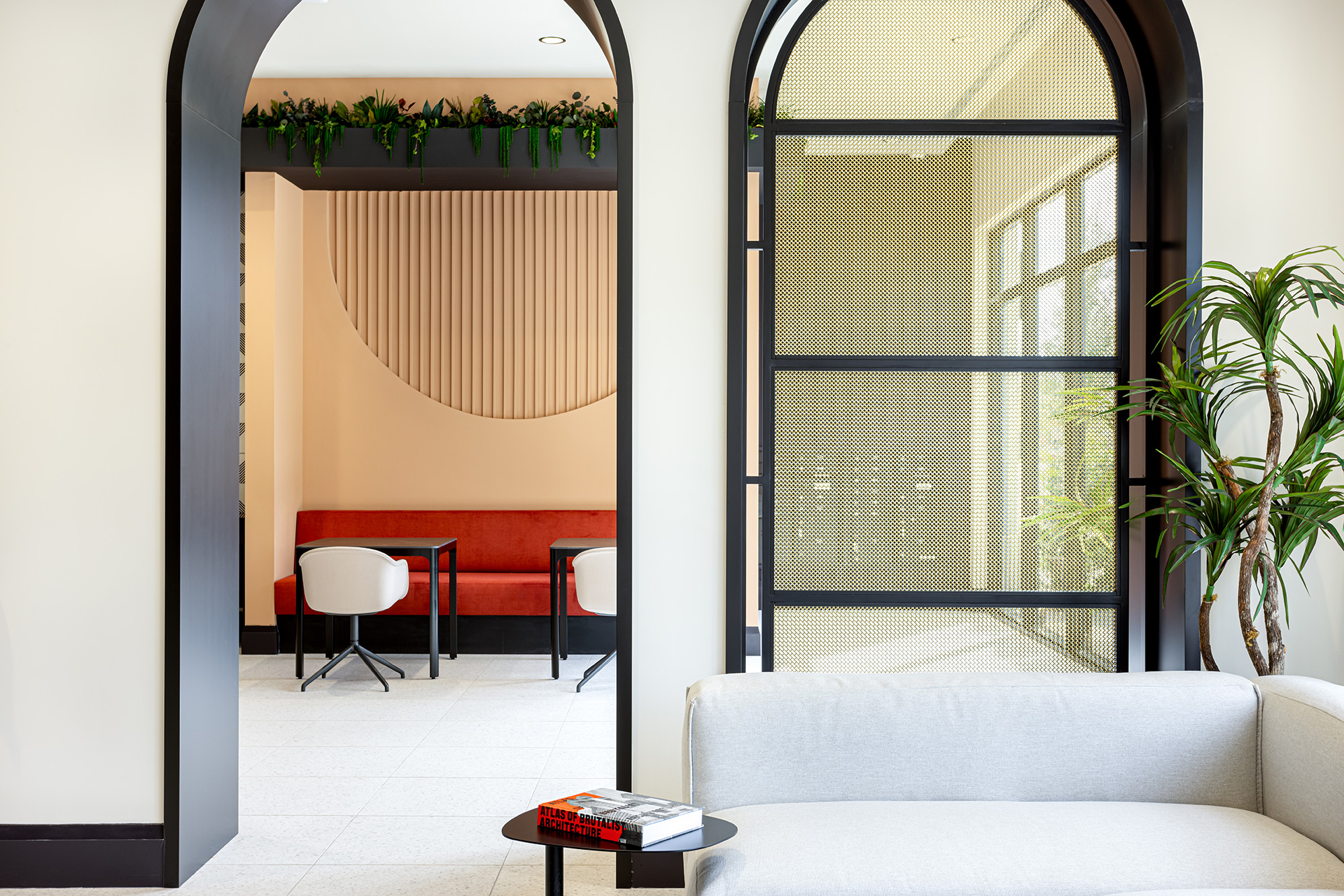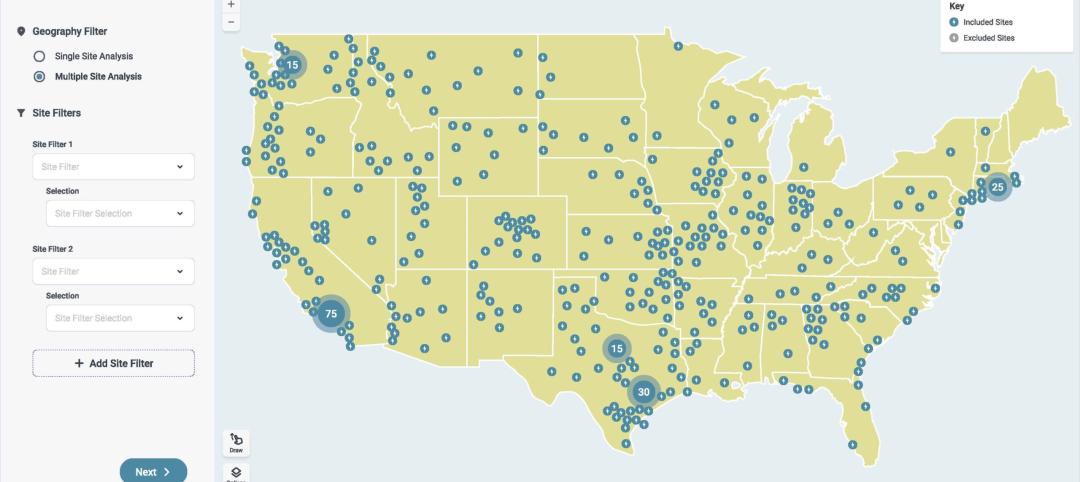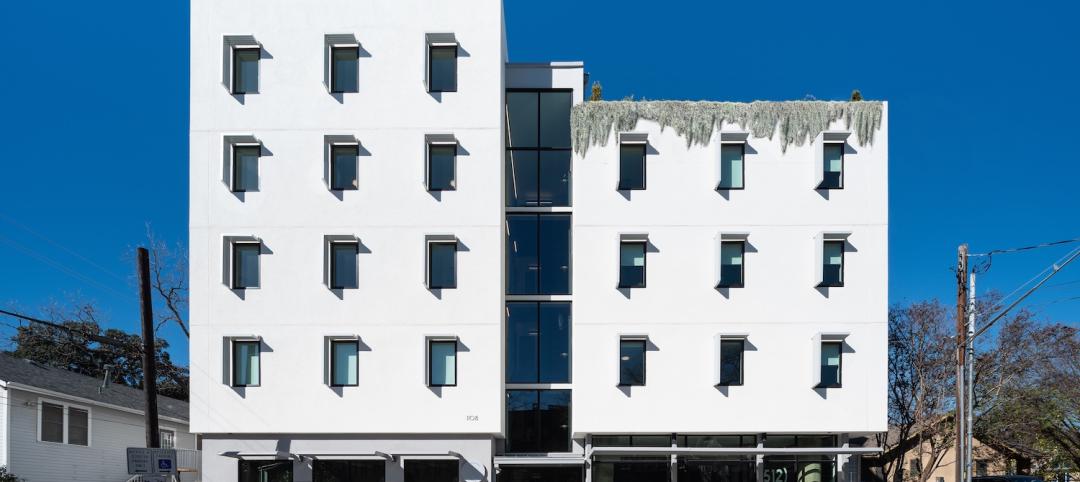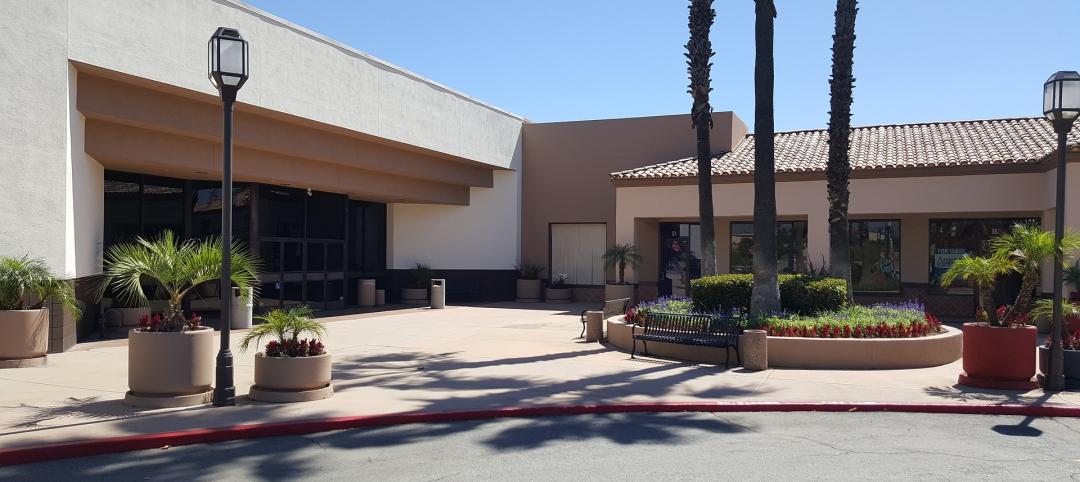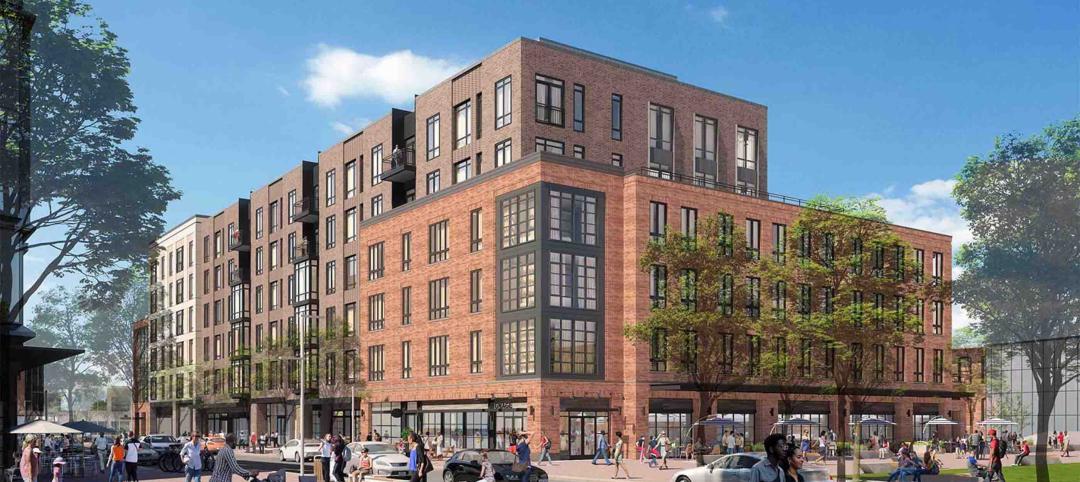As the demands of urban living continue to evolve, the need for a tranquil and refined home environment has never been more pronounced. Residents are increasingly seeking spaces that offer a respite from the bustling city life, longing for places where they can unwind and find peace.
This desire has given rise to the trend of "quiet luxury" influences in multifamily properties, an ethos centered on understated elegance, quality, and serenity. This approach prioritizes the creation of spaces that exude a sense of calm and refinement, with every detail curated to evoke a feeling of indulgence.
Combining high-end design with practical living spaces can improve residents’ quality of life. This approach enhances resident experiences and establishes new standards of comfort and sophistication. One of our most recent projects, Modera Coral Springs, exemplifies this type of transition for multifamily spaces. This development introduces modern, market-rate apartments that offer a holistic living environment through key elements such as luxury amenities and thoughtfully-designed community spaces.
How to identify quiet luxury?
High-quality materials play a crucial role in defining quiet luxury. Modera Coral Springs features heavy-grained stones and terrazzos are used alongside bleached wood tones to create a sophisticated space. These materials are not only visually appealing but also tactile, enhancing the sensory experience of the built environment.
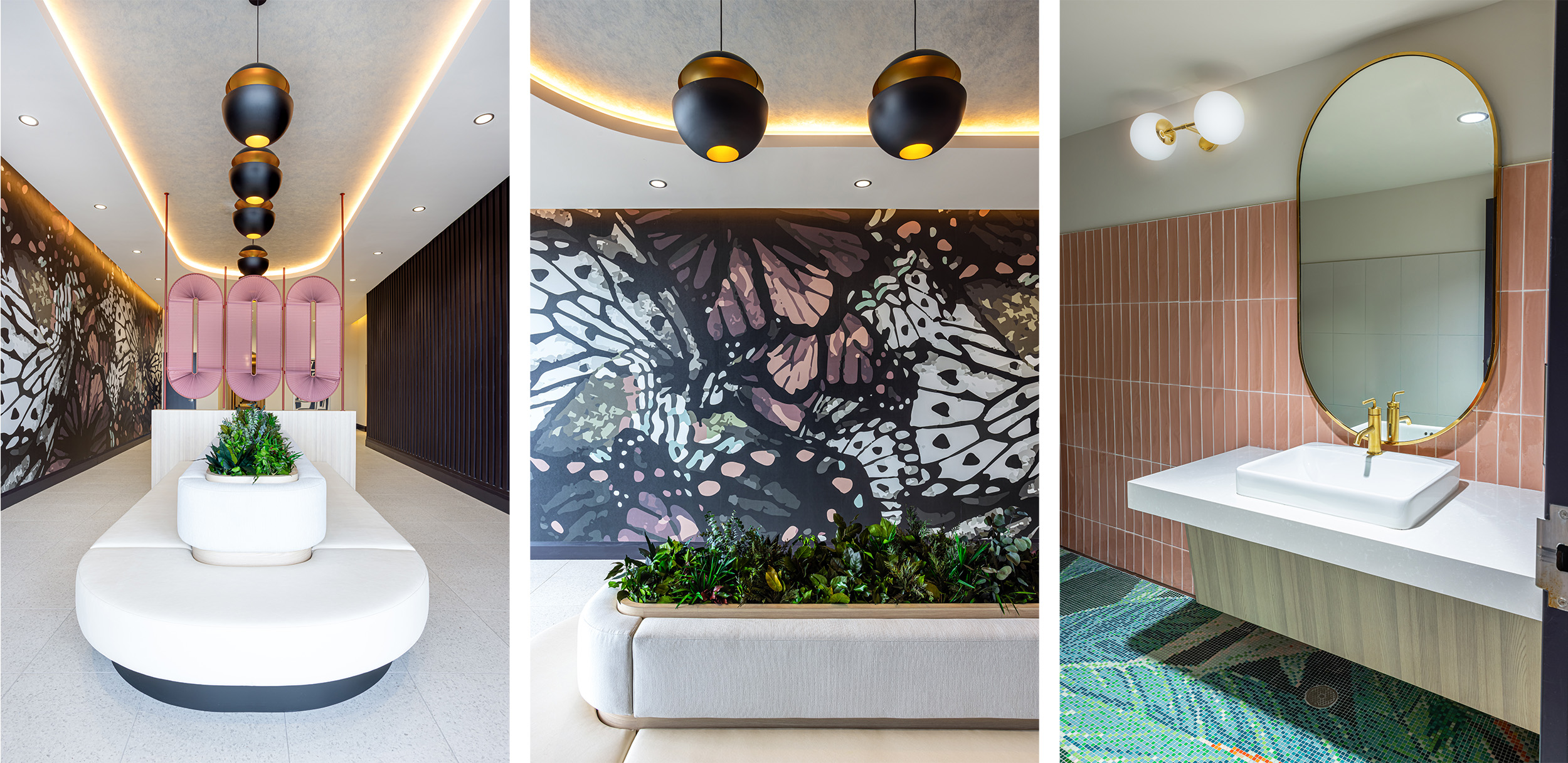
To further enhance the living experience, a property should offer top-notch amenities that align with the quiet luxury ethos. At Modera Coral Springs, these include a club room, dedicated coworking space, game room, fitness center, rooftop deck, and pool deck. Each amenity is designed with a warm, organic connection to the region, ensuring that residents have access to both relaxation and recreation.
By understanding the foundational principles of quiet luxury, you can explore the specific advantages it brings to multifamily properties.
Enhanced Resident Satisfaction
Residents who experience the environments created by this design philosophy are more likely to renew their leases, leading to higher retention rates. The lifestyle benefits offered by such spaces—where comfort and luxury are seamlessly blended—make residents feel more valued and content, contributing to a sense of well-being.
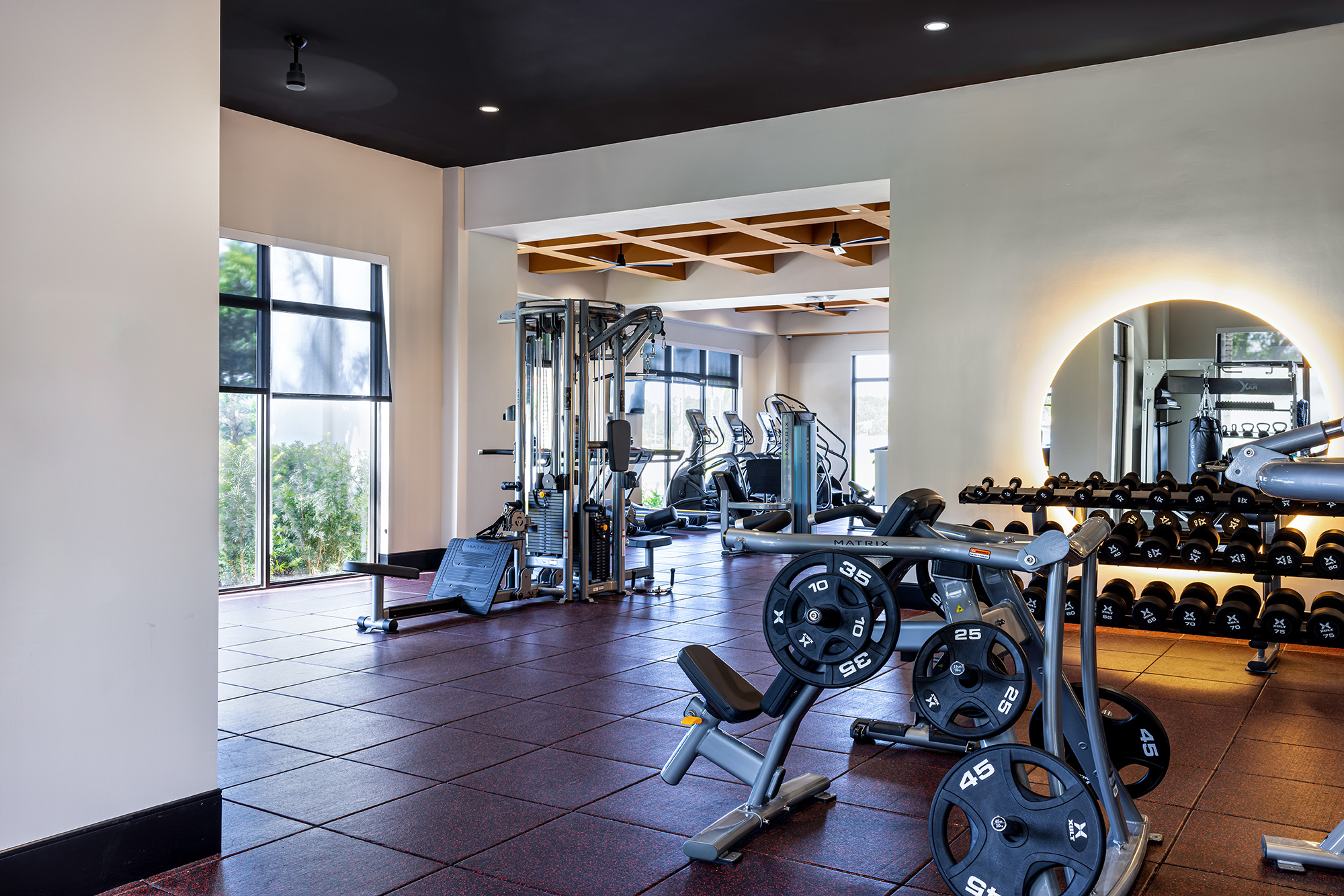
Increased Property Value
Properties that incorporate quiet luxury elements often see an increase in their market value. High-quality finishes, premium amenities, and sophisticated design contribute to a perception of greater worth, making the property more attractive to potential investors and buyers.
Elevated Brand Image
Branding extends beyond logos and marketing materials; it encompasses the overall experience and perception of the property. These design principles provide a cohesive and consistent aesthetic that aligns with the property's brand identity. This consistency can differentiate these properties from competitors that may prioritize more conventional or generic design approaches.
While the concept of quiet luxury might evoke images of high costs, it is possible to incorporate this trend affordably by focusing on strategic planning and thoughtful design choices, while maximizing the impact of each investment.
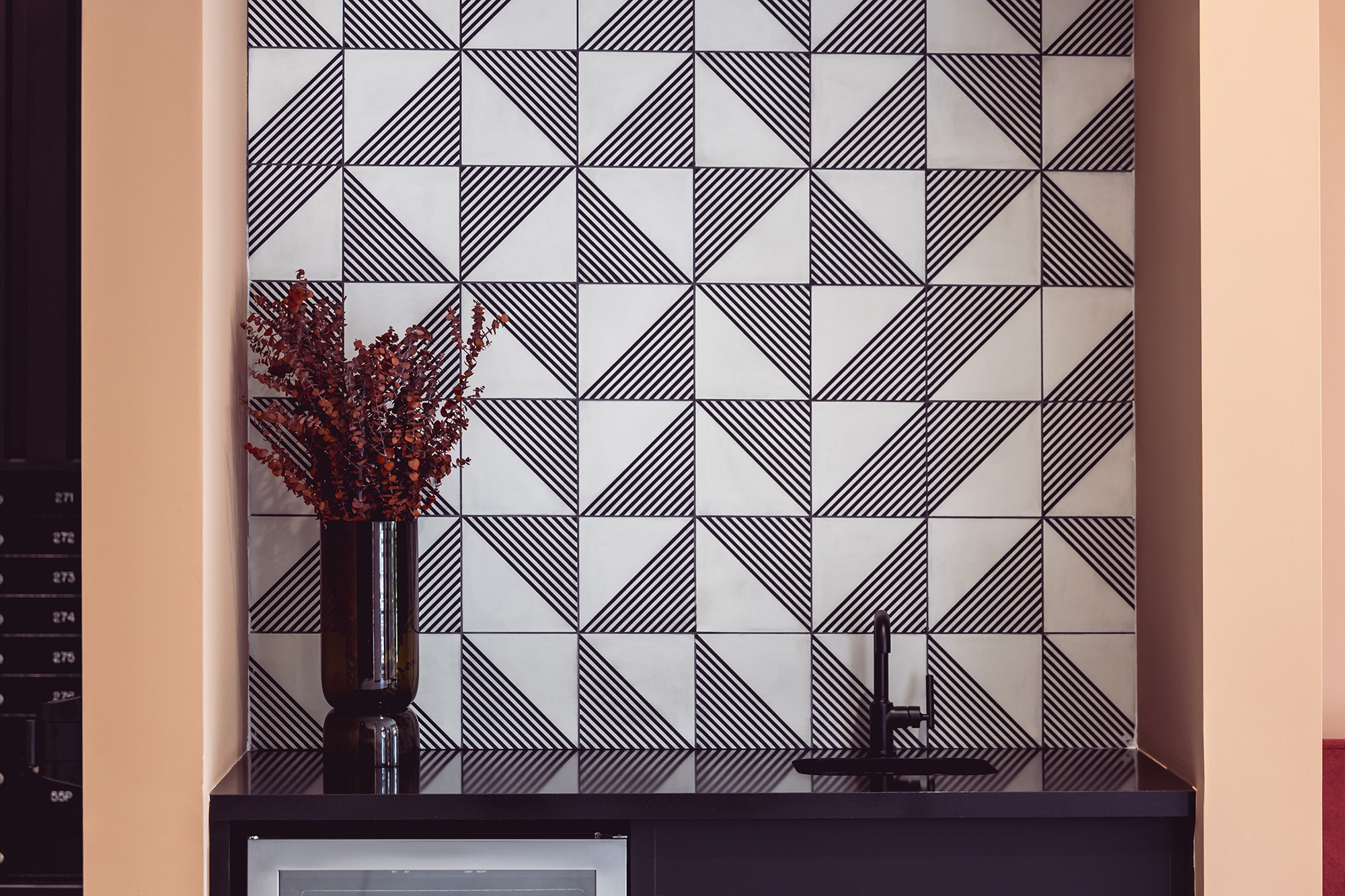
Strategic Material Selection
Choose timeless materials such as natural stone, wood veneers, and high-quality laminates that can lend a sense of luxury without breaking the budget.
Thoughtful Space Planning
Utilize natural light to create an airy and inviting atmosphere. Optimize window placements and use light-colored finishes to reflect light and make spaces feel brighter and more spacious. Planning also involves creating functional layouts. Focus on curating efficient and functional layouts that maximize space utilization and enhance the overall flow of the multifamily units. This can make even modestly sized units feel luxurious and comfortable.
Efficient Use of Amenities
Design multifunctional spaces that can serve multiple purposes to maximize their utility and appeal. For example, a community room could double as a coworking space during the day and a social gathering space in the evenings, offering residents flexibility and convenience without the need for additional square footage.
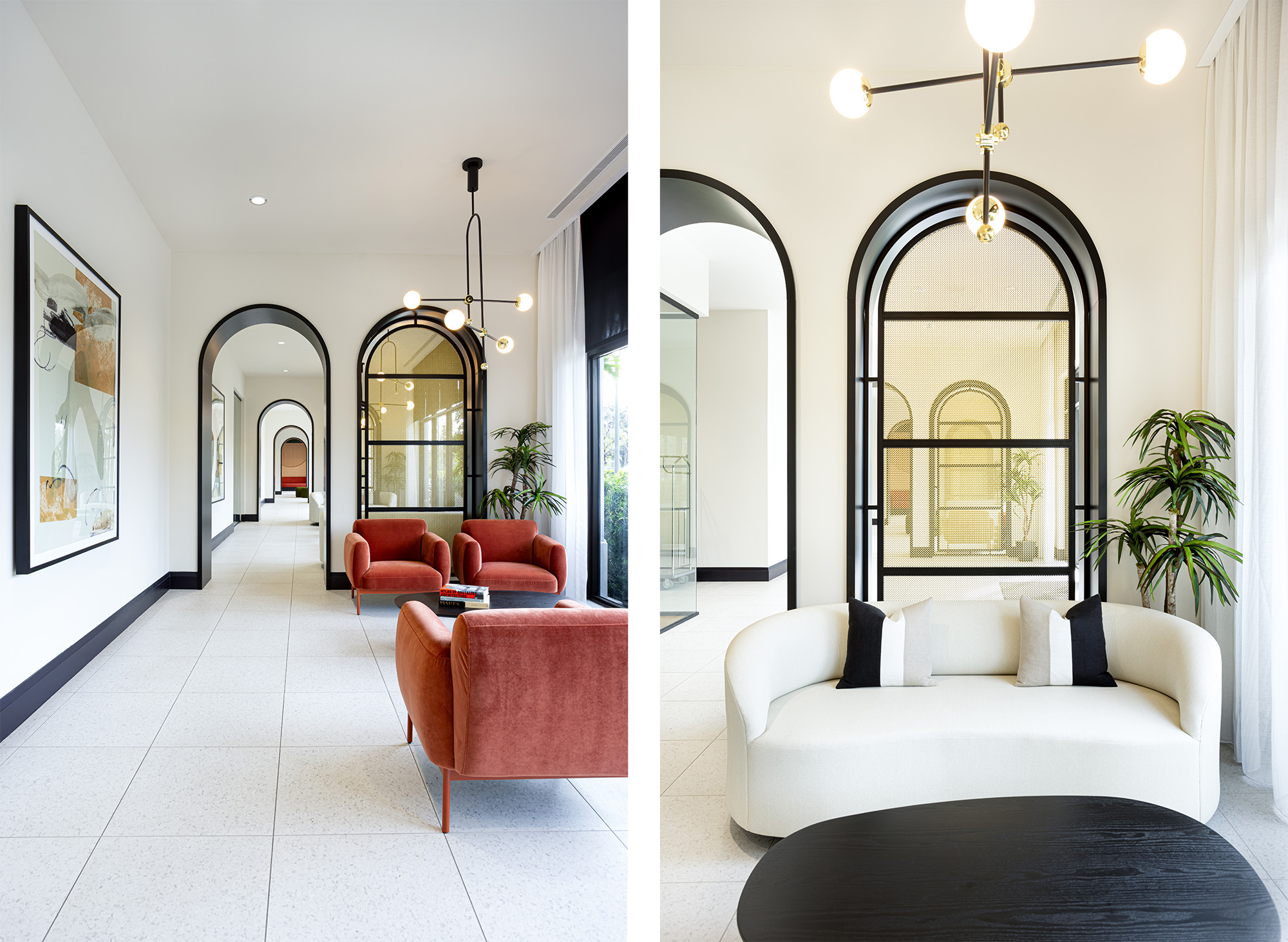
By prioritizing quality, serenity, and understated elegance, developers can create environments that meet the evolving needs of urban residents. Our recent collaborations showcase the potential of this approach, offering a blueprint for how multifamily properties can evolve to provide a more fulfilling living experience for residents.
As urban living continues to change, the adoption of these design principles will likely become a key differentiator in the real estate market, setting new standards for market-rate apartments and resident satisfaction.
Related Stories
Multifamily Housing | Nov 30, 2023
A lasting housing impact: Gen-Z redefines multifamily living
Nathan Casteel, Design Leader, DLR Group, details what sets an apartment community apart for younger generations.
Products and Materials | Nov 30, 2023
Top building products for November 2023
BD+C Editors break down 15 of the top building products this month, from horizontal sliding windows to discreet indoor air infusers.
Engineers | Nov 27, 2023
Kimley-Horn eliminates the guesswork of electric vehicle charger site selection
Private businesses and governments can now choose their new electric vehicle (EV) charger locations with data-driven precision. Kimley-Horn, the national engineering, planning, and design consulting firm, today launched TREDLite EV, a cloud-based tool that helps organizations develop and optimize their EV charger deployment strategies based on the organization’s unique priorities.
MFPRO+ Blog | Nov 27, 2023
7 ways multifamily designers can promote wellness in urban communities
Shepley Bulfinch's Natalie Shutt-Banks, AIA, identifies design elements that multifamily developers can use to maximize space while creating a positive impact on residents and the planet
MFPRO+ New Projects | Nov 21, 2023
An 'eco-obsessed' multifamily housing project takes advantage of downtown Austin’s small lots
In downtown Austin, Tex., architecture firm McKinney York says it built Capitol Quarters to be “eco-obsessed, not just eco-minded.” With airtight walls, better insulation, and super-efficient VRF (variable refrigerant flow) systems, Capitol Quarters uses 30% less energy than other living spaces in Austin, according to a statement from McKinney York.
MFPRO+ News | Nov 21, 2023
California building electrification laws could prompt more evictions and rent increases
California laws requiring apartment owners to ditch appliances that use fossil fuels could prompt more evictions and rent increases in the state, according to a report from the nonprofit Strategic Actions for a Just Economy. The law could spur more evictions if landlords undertake major renovations to comply with the electrification rule.
MFPRO+ News | Nov 21, 2023
Underused strip malls offer great potential for conversions to residential use
Replacing moribund strip malls with multifamily housing could make a notable dent in the housing shortage and revitalize under-used properties across the country, according to a report from housing nonprofit Enterprise Community Partners.
MFPRO+ News | Nov 21, 2023
Renters value amenities that support a mobile, connected lifestyle
Multifamily renters prioritize features and amenities that reflect a mobile, connected lifestyle, according to the National Multifamily Housing Council (NMHC) and Grace Hill 2024 Renter Preferences Survey.
Sustainability | Nov 20, 2023
8 strategies for multifamily passive house design projects
Stantec's Brett Lambert, Principal of Architecture and Passive House Certified Consultant, uses the Northland Newton Development project to guide designers with eight tips for designing multifamily passive house projects.



